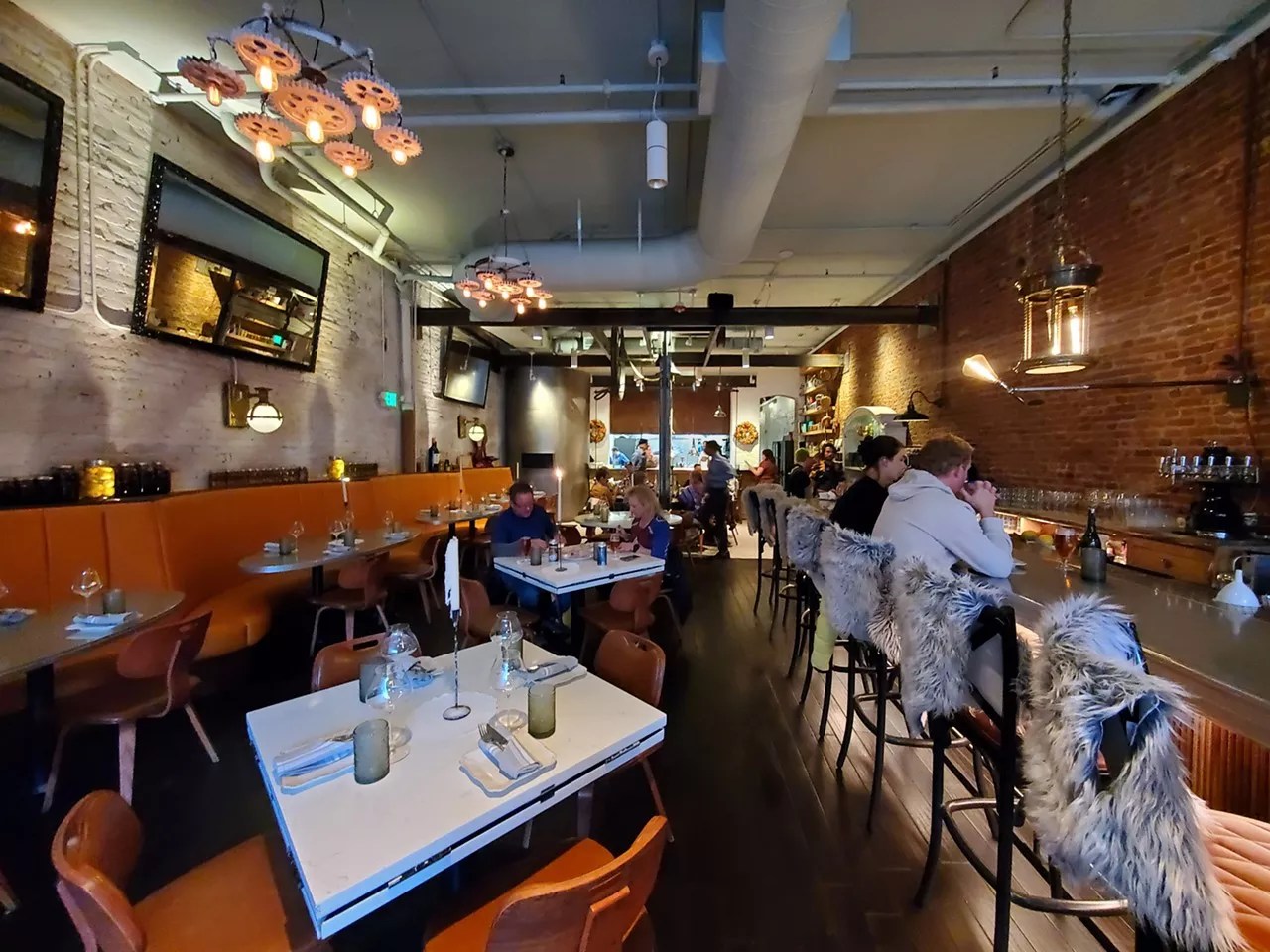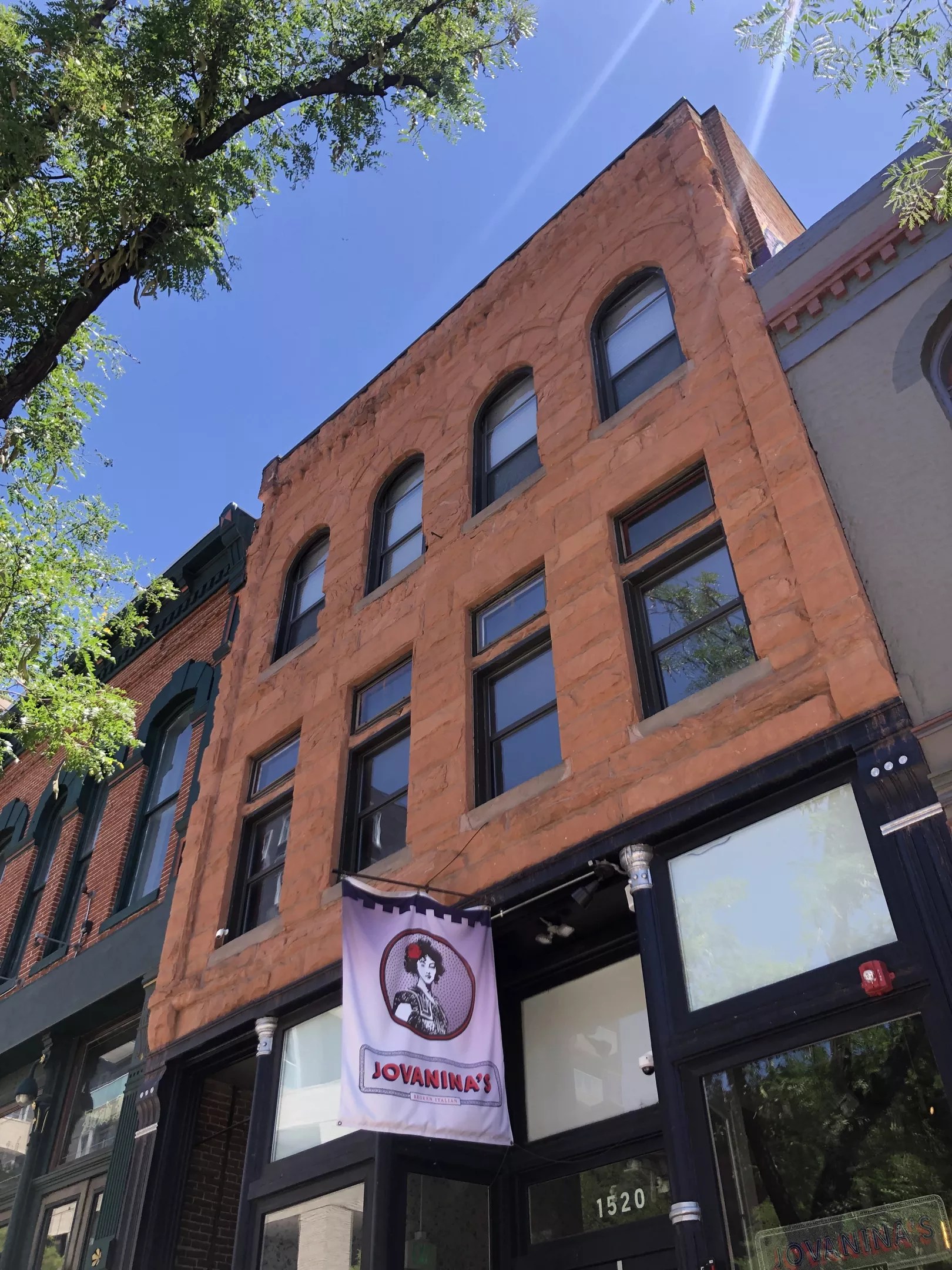
Molly Martin

Audio By Carbonatix
Jake Linzinmeir, chef/owner of Jovanina’s Broken Italian, opened the restaurant in an old LoDo storefront at 1520 Blake Street in 2018. To help cover some of the costs of restoring and maintaining the historic building, he rented out one of the two apartments above the restaurant as a short-term rental, and while the second unit serves as his primary residence, he’d occasionally rent that out as a short-term rental when he was traveling.
Being able to use those residential units as STRs has been “a big part of our ability to afford to pay for the building,” Linzinmeir says. “It got us through the pandemic.”
But last year, when he submitted a renewal license for the STRs, it was placed on pending status, and when his active license expired, Airbnb took his listing offline. In March, he submitted a new application. Months later, he’s been told his STRs are “not compliant” – but he hasn’t been told why.
The Denver Department of Excise & Licenses began regulating STRs in 2017; one of the rules requires that an STR be a host’s primary residence. “The last thing we want is for the cost of living in Denver to rise even more because of investors coming in and buying up properties to rent them out as short-term rentals,” explains spokesperson Eric Escudero.
In the only exception to the primary residence rule, the department allows STR hosts to rent out “Accessory Dwelling Units.” The city defines an ADU as “a second, subordinate dwelling unit located on the same zone lot as a primary single unit dwelling.”
Linzinmeir believes the second unit above his restaurant complies with that rule, and his lawyer has submitted a “memorandum of law” to Excise & Licenses making that case. So far, though, the city has not responded.
“It seems like if you have a question for the city, the answer is ‘No,'” Linzinmeir says. “I just don’t know what the problem is, and I can’t get any answers.”

The entrance to an apartment that Jake Linzinmeir has been using as an Airbnb.
Benjamin Neufeld
On April 27, more than a month after he submitted his new license application, an Excise & Licenses employee inspected Linzinmeir’s two units. At one point, Linzinmeir says, the inspector told him he was breaking the law but would not explain how.
“We’ve requested the written report and been assured that there has been no report written,” says Linzinmeir’s lawyer, Kianna Jackson. “The excuse given is that there’s a backlog. But to have it noted on the file that there’s a result but not being able to know or see what should be fixed or changed to be in compliance has further hamstrung our application.”
The Excise & Licenses website says that an initial application review is supposed to take seven days, and that the department will send out requests for additional information within fourteen days. “Needless to say, that has not happened in our application process,” Jackson notes.
According to Escudero, the city generally approves STR license applications quickly; 80 percent of new STR applications and 70 percent of renewal applications are processed within thirty days. Only 2 percent of new applications and 3 percent of renewals take more than six months to process, he adds, and those are usually the applications that have been flagged for potentially being non-compliant. “The goal is to get the decision right rather than fast,” he says.
Excise & Licenses cannot provide applicants with anything that might constitute legal advice, Escudero adds, and that explains why department employees cannot say what policies Linzinmeir or any other STR host hopeful might be violating until a formal investigation process is complete. “It can put the city in a very bad place because our inspectors are not lawyers,” Escudero says.
However, applicants can read the city’s STR rules and “make a determination for themselves,” Escudero notes. “It is very clear in the city’s most frequently asked questions about short-term rentals website about the rule of only having one primary residence.”

Jake Linzinmeir’s restaurant and the location of his stalled STRs.
Benjamin Neufeld
But Linzinmeir insists that he only has one primary residence: the apartment above the restaurant, which he occasionally rents out when he is traveling. He and Jackson argue that the second unit above the restaurant qualifies as an “appropriate and proper accessory dwelling unit” based on Denver’s zoning code. After all, people are able to use separate apartments in their homes as STRs.
While he waits for the city’s response, Linzinmeir is in limbo, unable to do anything with that second apartment, much less use his own home as an occasional STR. He says he would prefer to rent that second unit as an STR because it is the most lucrative option and because Airbnb is “just so easy.” But if he’s told by the city that the building simply cannot qualify for an STR license, he plans to try to get a traditional bed-and-breakfast license; he already has the restaurant downstairs to provide the breakfast part. Renting the second unit as a long-term residence would be his worst-case option.
Linzinmeir says he understands why the city has such strict STR regulations, having seen the effect that unregulated STRs have had in mountain town housing markets like Vail, where his wife runs a restaurant. But in the LoDo neighborhood of downtown Denver, where hotels abound, he thinks that the city is interpreting its rules too strictly.
“It’s bringing people to town to spend money,” he says of the STRs. “I mean, [the city is] making good tax money off it.”
But the city stands by its rules – even if it’s not telling Linzinmeir which ones he might be violating.
“One of the biggest challenges Denver and other large cities are facing is cost of living, especially the cost of housing,” Escudero says. “Due to the city’s focus on regulating short-term rentals since 2017, short-term rentals have played no role in lower housing inventory and higher costs for people to find a home….This is one of the most important regulations we have to support overall city efforts to expand available housing and not introduce other factors that could make a challenging situation worse.”
Other STR hosts in Denver have reported similar problems with getting their licenses renewed; many have waited a long time to hear about their short-term rental applications, only to have them denied. Like Linzinmeir, they argue that the city’s definitions of a primary residence and what constitutes an ADU are vague.
Although Excise & Licenses doesn’t yet have an answer for Linzinmeir, Escudero does have an answer for critics: They can share their concerns about STR regulations at the next short-term rental advisory committee meeting on August 8.